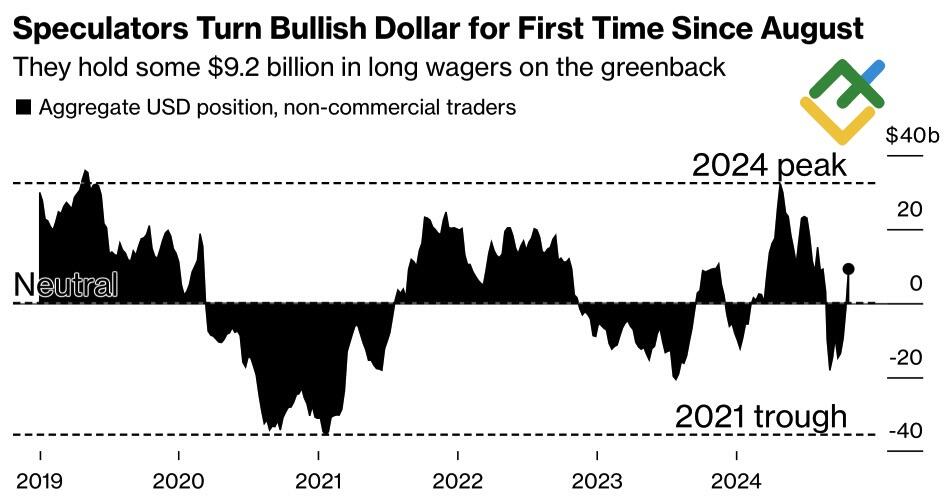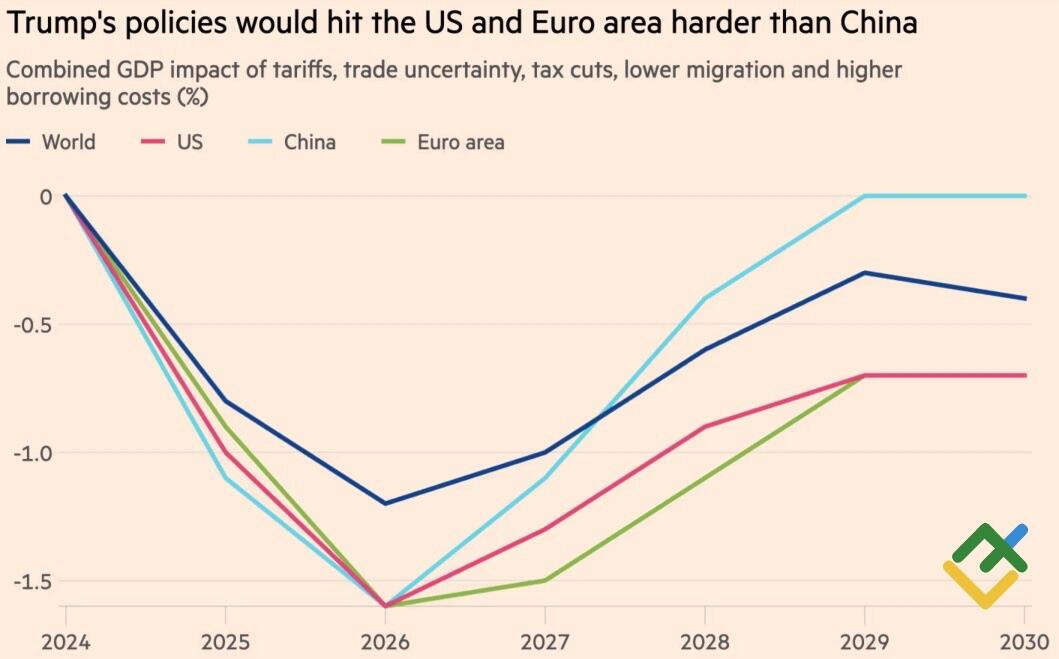
In response to prevailing pessimism, speculators swiftly relocated their focus back to the US dollar. The prospect of trade wars and armed conflicts is a cause for concern for the global economy. In such circumstances, it is standard practice to sell the EURUSD pair. Let’s discuss this topic and make a trading plan.
The article covers the following subjects:
Highlights and key points
- The global economy is at risk of losses due to Donald Trump.
- Divergence in monetary policy favors the US dollar.
- The US labor market and European inflation data will clarify the situation.
- The risk of the EURUSD consolidating within the range of 1.073-1.084 is increasing.
Weekly US dollar fundamental forecast
As a rule, optimists choose the euro, while the US dollar is associated with pessimism. Given the current geopolitical climate and the protectionist policies of front-runner Donald Trump, the EURUSD pair is falling. Hedge funds and asset managers, who have been bearish on the US dollar for several weeks, are bullish again, with the major currency pair marking its longest streak of weekly losses in eight months.
US dollar speculative positions
Source: Bloomberg.
IMF estimates that global GDP will expand by 3.2% next year. However, should Donald Trump implement proposed import tariffs, economic growth is expected to decline by 0.8 pp in 2025 and 1.3 pp in 2026. Moreover, the shockwaves will be devastating not only for China, which is reliant on exports to the eurozone, but also for the US. Morgan Stanley projects that trade wars will diminish real US GDP growth by 1.4 pp and accelerate consumer prices by 0.9 pp.
Christine Lagarde states that the eurozone will experience a further economic setback due to the persistently low level of domestic demand. At the same time, the probability of inflationary acceleration will increase. According to ECB research, new tariffs targeting strategic facilities will diminish global GDP by 6% of its potential growth. A more pessimistic scenario suggests a loss of 9%.
Impact of tariffs on global economies
Source: Financial Times.
In light of the accelerating inflation in Europe, the ECB will likely refrain from pursuing an aggressive rate reduction strategy. However, investors are aware that price increases will be more gradual in a weak economy than in a strong one. A rise in inflation is more likely in the US than in the eurozone, which would force the Fed to maintain the federal funds rate at its current level. In addition, the US regulator may resume its monetary restriction cycle, giving the US dollar a boost.
Investors have shifted their focus to the upcoming election in the US. However, according to State Street Global Markets, regardless of who becomes the new US president, the EURUSD rate will continue to decline due to discrepancies in economic growth and monetary policies. The futures market indicates a 40% probability of a 50 bp cut in the ECB deposit rate in December. Additionally, there is skepticism that the federal funds rate will be cut at the upcoming FOMC meeting.
Weekly EURUSD trading plan
The data on European inflation and US employment will provide valuable insight into the future trajectory of the key rates. The first indicator is expected to accelerate to 1.9% from 1.7%, while the second is anticipated to decelerate to +125k from +254k. This is not the most favorable scenario for EURUSD bears. By the end of October, the main currency pair may enter a consolidation phase within the range of 1.073-1.084. Short trades formed at 1.12, 1.1045, and below should be kept open.
Price chart of EURUSD in real time mode
The content of this article reflects the author’s opinion and does not necessarily reflect the official position of LiteFinance. The material published on this page is provided for informational purposes only and should not be considered as the provision of investment advice for the purposes of Directive 2004/39/EC.
{{value}} ( {{count}} {{title}} )
This post is originally published on LITEFINANCE.





